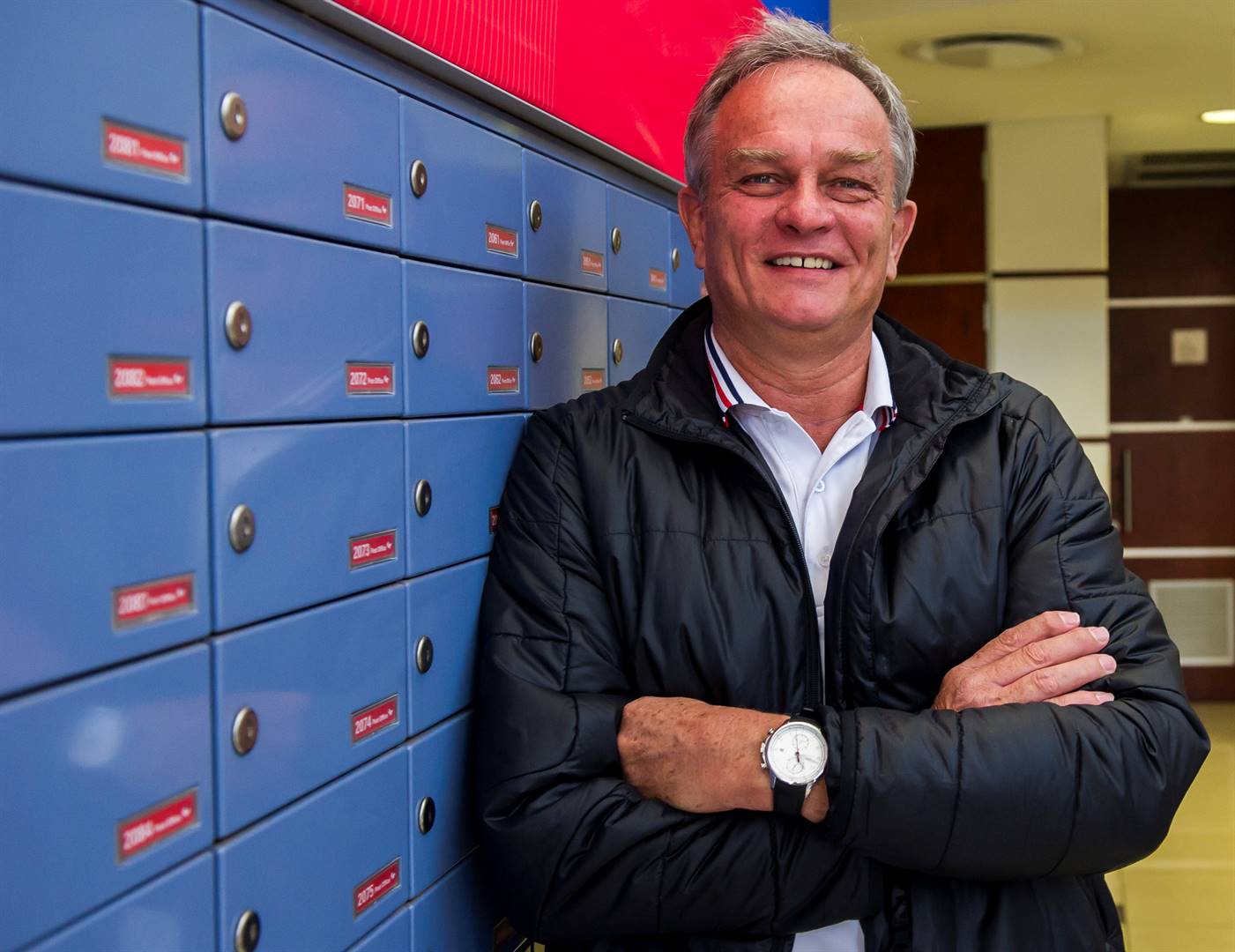
In the time remaining to him at the helm of the South African Post Office, chief executive Mark Barnes aims to transform the organisation into an indispensible state asset placed “at the centre of the universe for government services and supplies.”
Barnes told a Gibs forum that following the successful handover of the payment of Social Security Agency grants to millions of beneficiaries to the Post Office from Cash Paymaster Services last October, the organisation has developed an integrated payment system that can facilitate any form of payment from government to its citizens and back.
“We are now starting to think of the Post Office as owners of data and integrators of systems. We would like to convince the government that we needed one integrated system, and developed a piece of technology which regards every counter at the Post Office as a channel to or from the market.”
Barnes said the Post Office is now in discussions to explore possible applications of the technology to government services, such as the delivery of identity document and passports, and the distribution of antiretroviral medicines.
Barnes said the Post Office’s unique irreplaceable commercial asset was its footprint, which no competitor could afford to build today.
Read: SA Post Office in hot water over R200m Postbank transfer
Post Office turnaround strategy
“When I arrived at the post office, it was long dead,” Barnes said. “The first thing we had to do was survive.”
Barnes said his initial discussions with the government centered on creating the understanding that he was not managing just a post office, but an underutilised infrastructure with a commercially irreplaceable footprint: “That’s our only differentiated asset. The rest can be disintermediated and done by other people, but not at the same price. We are the first formal point of contact for a vast proportion of the population.”
His task was to make the organisation relevant, if not a priority: “Our strategy was to become essential and get a mandate that was profitable, instead of continuing government dependencies. We then take the capital that we earned and the profit made out of doing other businesses that were previously done outside the fiscal circle, and use that capital to build a competitive Post Office.”
There has been no capital investment in the Post Office for about 15 years, Barnes explained, “which is a long time in a fast-changing technology environment.”
While the majority of services at the top postal services in world are mechanised, 80% of mail and parcels in South Africa are still processed manually.
“There are only four scanners at one of the sorting hubs, but now that we are starting to make money to buy technology, there are going to be many, many more,” Barnes said.
The South African Post Office 2030 vision is of an organisation that is relevant, reliable, has reach and is resilient.
This has “fundamentally changed how much energy people have, what language they are using, and how much they are prepared to help each other do things,” Barnes added.
“We see ourselves as the repository of a huge super computer for government services – we want to change from an ordinary post office to a multi-channel office of exchange.”
Public private partnerships
State-owned enterprises have to have a clear business model, Barnes argued.
“At state-owned enterprises, there is a conundrum between social imperatives and commercial survival. Unless you understand that these are two very different priorities, you will mix them so that neither prevails.”
He emphasised the need to build state capacity, not continue state dependency: “Every time a piece of economics crosses the fiscal line (to the private sector), it creates an opportunity for corruption, mispricing and for exploitation of economics by the private sector. Everything that the state should do, should be done by the state.”
However, he conceded that public private partnerships would be “foisted upon us – we won’t have any other choice because there is simply be no other way to leap frog from where we are to what’s competitive.”
The Post Office wouldn’t enter into any significant public private partnerships that create dependency, however: “We will enter into a partnership when the time to market is significantly shortened and the economics are obvious. We are open to that notion now. The regulatory implications are complicated, but you will find us doing many public private partnerships over the next two years, at the right price,” he said.
Read: Post Office offers 6% wage increase after workers embark on strike action
Building organisational trust
The centre of the organisational renewal of the Post Office has been a change in culture, Barnes explained. The Post Office represented protected employment for a long time, and long serving staff had to understand that their purpose is to transfer skill, Barnes said.
“There was a silo mentality with downward authority and upward delegation. We started by crushing the lines between people and started inviting their opinions and encouraging them to exercise judgment at the coal face of the operations.”
He said the Post Office had developed a culture of failure which had gone beyond being a habit.
“Failure had become a refuge, a place you went to be safe. Now, we have started rewarding mistakes, because if you make a mistake it’s because you’ve exercised judgment.
“We realised that if we wanted people to trust us, we have to trust our people first. We had to let them make judgments and decisions, and let them make mistakes,” he concluded.




 Publications
Publications
 Partners
Partners








